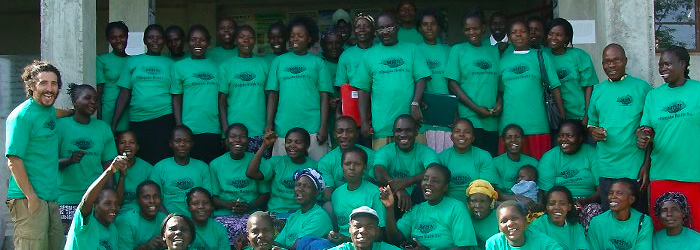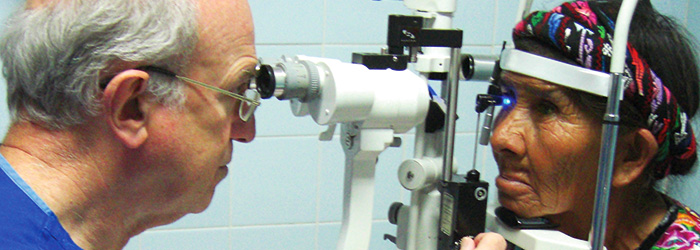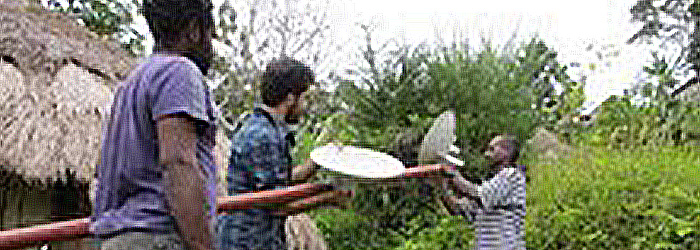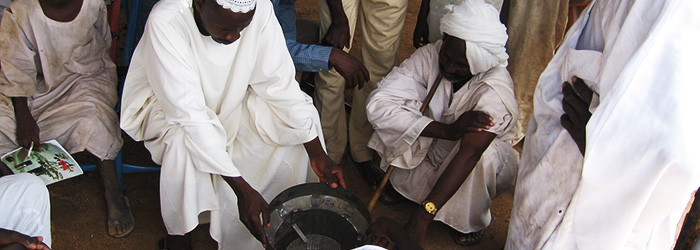USAID
Carries out U.S. foreign policy by promoting broad-scale human progress and while expanding stable, free societies.
University of California, Berkeley
Carries out U.S. foreign policy by promoting broad-scale human progress and while expanding stable, free societies.
Dedicated to promoting health worldwide through advanced biomedical research, graduate-level education in the life sciences and health professions.
A leader in research, theory and applied science in Agriculture, Environment and Natural Resources, Energy, Public Health, and Entrepreneurship.
A member of the national laboratory system supported by the United States Department of Energy through its Office of Science.
Provides aspiring entrepreneurs with mentoring, exposure, and prizes to transform their ideas into businesses that will have positive impact.
The University of California’s premiere center for research on global development.
Draws on innovative methods to identify, refine, evaluate, and scale new solutions, with a focus on long-term sustainability and affordability.
Focuses on developing a hardware/software infrastructure designed for developing areas.
Completed her practice with Nest, a nonprofit microbartering and fair trade organization in Nairobi, Kenya.
Completed her practice with Blue-Med Africa in Ghana. She shadowed doctors, and assisted with patient intake and outtake.
Completed her Practice in Trichy, India working with Nest, a nonprofit microbartering and fair trade organization.
Completed her Practice in Panajachel, Guatemala where she worked with Nest, a nonprofit microbartering and fair trade organization.
Shahrzad completed her Practice with Sambhali Trust in Jodhpur, India to support the education and empowerment of lower-caste women.
Completed her Practice in Togo, Western Africa where she worked with Nest, a nonprofit microbartering and fair trade organization.
Completed her Practice in Quito, Ecuador where she worked in a reproductive health clinic and assisted with sexual and reproductive health education.
Completed her Practice in Cape Coast, Ghana where she worked with the Rural Women Development and Health Initiative.

In impoverished and war-torn areas, regional instability leads to ineffective health care infrastructure unable to adequately treat ailments such as diabetes and HIV/AIDS.
Through community-based workshops, micro-clinics leverage social networks to spread “contagious health” best practices, providing information dissemination and training in conjunction with local partners.
The NGO MicroClinics International will expand and support the 1,500 established micro-clinics spanning four continents through evaluation and policy advocacy. The group also recently launched a diabetes micro-clinic project domestically in Kentucky.
Prof. Eva Harris, School of Public Health
Daniel Zoughbie, Principal Investigator, CEO Microclinic International
[button link=”http://microclinics.org/” text=”Website”]

Over a billion people in the developing world lack access to an electric grid and instead rely on inefficient, expensive and polluting flame-based lighting.
The Lumina Project works through laboratory and field-based investigations to cultivate technologies and markets for safe, affordable lighting options that can replace fuel-based options in the developing world, including low-carbon alternatives, such as LED lighting.
In addition to supporting various off-grid lighting projects in Africa, the Lumina Project team has recently conducted in-depth studies of the health impacts of fuel-based lighting, in addition to market analysis regarding carbon credit mechanisms in the developing world.
Dr. Evan Mills, Building Technology and Urban Systems Department, Lawrence Berkeley National Laboratory
[button link=”http://light.lbl.gov/” text=”Website”]

Social organizations frequently lack the resources and expertise to assess the impact of their programs to guide future growth, as the opportunity costs of assessments are high and may result in little value added to the organization unless done in a meaningful way.
ReadyMade provides social enterprises a free and effective online tool to aid in assessment of impact and costs through analysis of essential data that are easy to collect.
ReadyMade will develop an online impact assessment tool that can be used by organizations to undertake assessments, track project outcomes, and create evaluation reports. The team has developed prototypes in a variety of areas, including a cataract surgery clinic, agricultural co-ops in Africa and Asia, and at-risk youth college-prep program in the US.
Prof. Clair Brown, Economics
Prototypes in South America, Africa, Asia, and United States
Developing an Effective and Efficient Assessment Template for Social Enterprises
Analysis of Berkeley Scholars to Cal Program
Hospital de la Familia’s Cataract Surgery Program in Guatemala

Over one billion people in rural areas worldwide lack access to the transformative technology of cellular phones.
The Village Base Station (VBTS) cellular tower is optimized for rural, off-grid deployments by drastically reducing the cost of cellular coverage through decreased required power, especially when not in active use.
The VBTS is deploying three towers in rural Papua, Indonesia, aiming to serve between 1,000 and 10,000 people.
Prof. Eric Brewer, Computer Science
Prof. Tapan Parikh, School of Information
Indonesia
[button link=”http://www.eecs.berkeley.edu/~kheimerl/pubs/vbts_nsdr10.pdf” text=”White Paper”]

Since 2003, civil conflict in Darfur has led to massive displacement of people into densely populated camps. The Darfur Stoves Project provides Darfuri women with specially developed cookstoves that require less firewood, reduce pollution, and decrease women’s need to trade food rations for fuel and their exposure to violence by reducing the time needed to collect needed firewood.
The stoves team leads the development of fuel efficient stoves through user-centered design, reducing both harmful emissions and firewood collection by 50% each. For a family, the stove leads to up to $1770 in firewood savings over five years.
Started at Lawrence Hall of Science (LBNL), the project is currently also the first initiative of Potential Energy, a Berkeley-based, independent nonprofit organization whose mission is to bring life-improving household technologies to women in the developing world. Potential Energy is transitioning to a market-based approach in Darfur and is partnering with LBNL to design a fuel-efficient stove for use in Ethiopia.
Dr. Ashok Gadgil, LBNL
Darfur, Sudan; Ethiopia
[button link=”http://www.potentialenergy.org/” text=”Website”]
Lack of reliable electricity results in inadequate obstetric care for pregnant mothers and their offspring in the developing world, contributing to morbidity and mortality.
The durable and portable “We Care Solar Suitcase” provides power for medical LED lighting, cell phones, and battery charging for fetal dopplers and headlamps – reducing delays and increasing capacity of providing emergency obstetric care.
We Care Solar aims to expand by deploying networks of Solar Suitcases in specific regions, partnering with Ministries of Health and NGOs to enhance health care delivery. The engineering team is working to improve the suitcase design through increased battery life, higher performance LEDs, and an integrated PC board. Additionally, a recently launched Solar Ambassador program has trained women to lead installations and international trainings.
Laura E. Stachel, MD, MPH, DrPH Candidate
Western, Central, and Eastern Africa; Central America, Haiti, Asia
[button link=”http://wecaresolar.org/” text=”Website”] [button link=”https://www.facebook.com/WeCareSolar” text=”Facebook”]